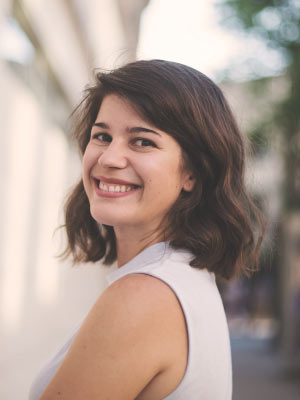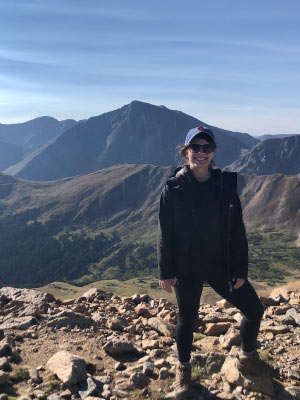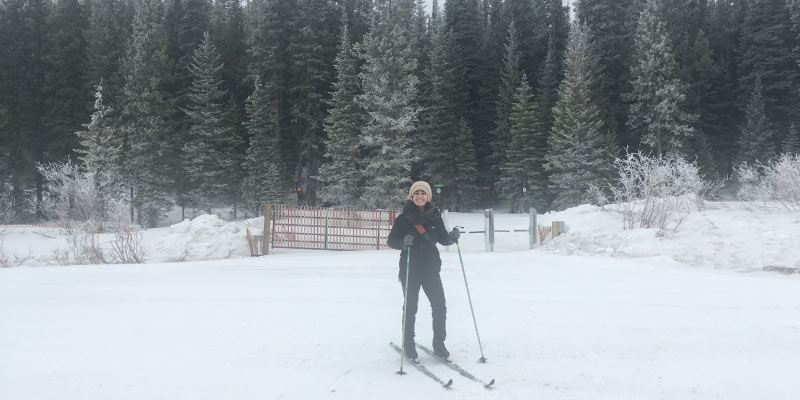
Starting her career by writing about environmental issues, Mary Kate McCoy found herself wanting to do more to support conservation efforts. “Personally, I had reached a point where I wanted to work more directly with finding solutions to the problems instead of just writing about them all the time,” McCoy said.
After graduating from the University of Wisconsin–Madison with her undergraduate degree in journalism, McCoy began working for Wisconsin Public Radio where she wrote a series on how climate change has impacted some of Wisconsin’s staple foods. “Cheese, beer, cranberries, that type of thing,” McCoy said. “That was a real turning point where I was like, this needs to be the focus of my career.”
The series dives into some of the real struggles local farmers are currently facing, from how increasing temperatures cause cows to decrease milk production to how intense rainfall increases cranberry rot. Additional topics that McCoy addressed in the series included how potatoes, wild rice, walleye, and breweries are combating climate change.
McCoy’s drive for implementing change turned her to the Nelson Institute’s environmental conservation (EC) program, a 15-month degree that teaches students how to apply practical interdisciplinary skillsets to a broad range of careers in conservation. “It felt like a really good way to meld my interest in the environment with my love and experience with storytelling,” McCoy said. “I had the communications background and was looking for more of a science background.”

During the first summer session of the program, McCoy took Land Use Policy and Planning, which she said was exactly the kind of course she was looking for when she joined the program. “It gave me a lot of really good practical skills and knowledge and was taught by some really excellent professors who have years of hands-on professional experience,” McCoy said.
The course was taught by Paul Kent, environmental lawyer at Stafford Rosenbaum LLP, and Kathleen Falk, former assistant attorney general of Wisconsin. “The Land Use course was fun to teach because it required the integration of theory and practice,” Kent said. Students were tasked with finding a real-world problem, developing a plan to affect change then presenting their plan to the class.
Kent explained that the course required students to know how government systems worked at a local, state, and national level. “The challenge is how to select the right potential tools out of that box to reach your policy objective,” Kent said. “It was exciting to see the policy makers of the future in action.”
McCoy’s background and time at the Nelson Institute has focused her interests on the world of policy. “The thing that I like about policy is that it is pretty similar to investigative journalism, which is why I’m drawn toward it,” McCoy said. “Policy is where change happens most of the time. I wouldn’t be doing this program if I wasn’t thinking about how I can actually make a difference.”
McCoy also took Agroecosystems and Global Change taught by Chris Kucharik, professor of agronomy and environmental studies, during her fall semester, which she said was both challenging and rewarding. “I have a particular interest in agriculture and how it can better work with the environment rather than just extracting from it and how the two can co-exist,” McCoy said. “I found that class to be really fascinating.”
As McCoy enters the second summer portion of the MS degree, she plans to work with Catherine Macdonald, North America Natural Climate Solutions director at the Nature Conservancy, and the U.S. Climate Alliance. There, McCoy will research avoided conversion and urban sprawl for climate mitigation policies in the Upper Midwest and Western states.

Looking back at the past year, McCoy said that her time in the environmental conservation program was spent surrounded by people with vastly different experiences than her. “I come from a journalism background. Science is not my thing, but I’m working with people all the time who did research or were teachers,” McCoy said. “There’s a whole variety of backgrounds, and I think there’s a lot of value and strength in those different experiences.”
Learn more about the Environmental Conservation MS and how you can support the program.